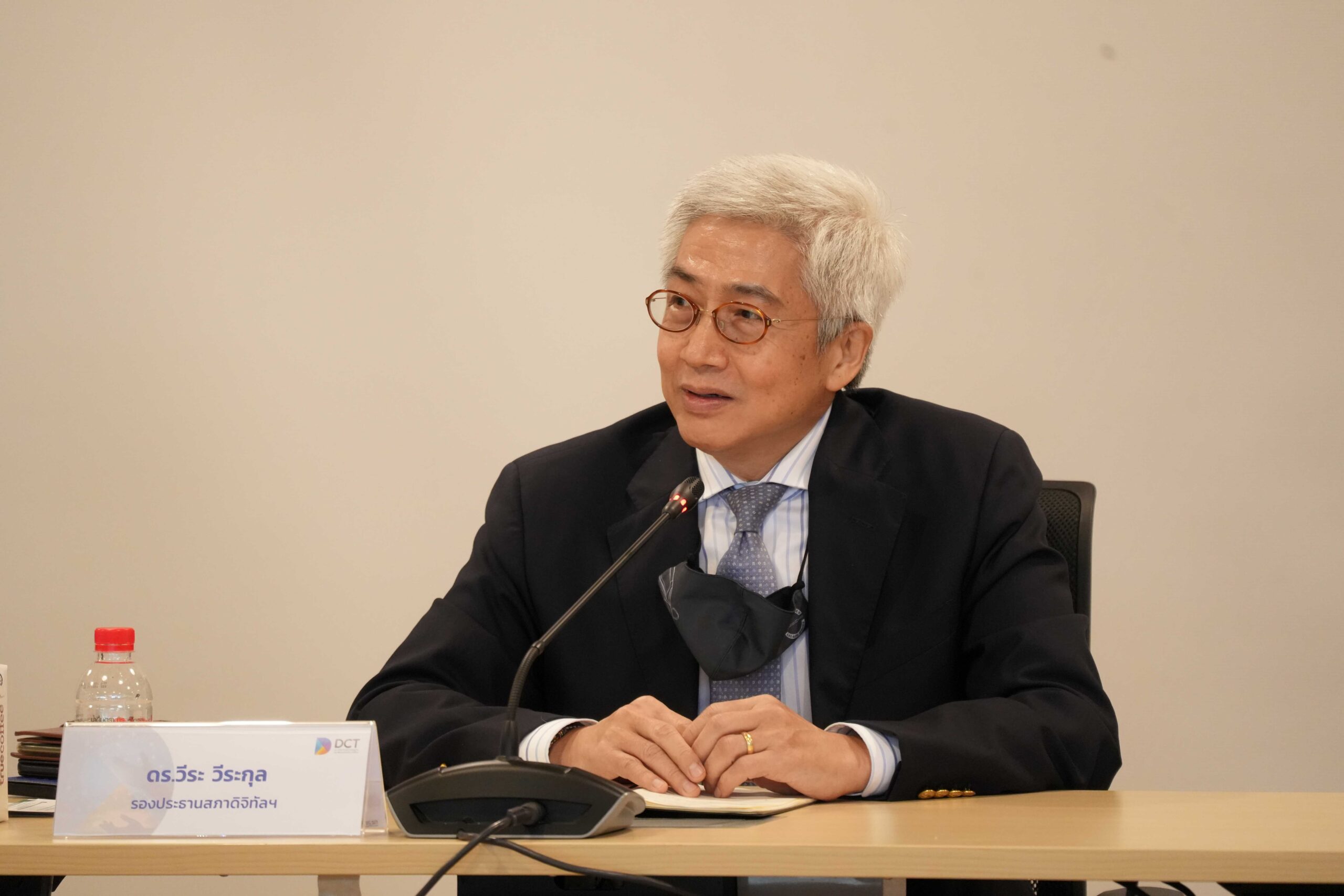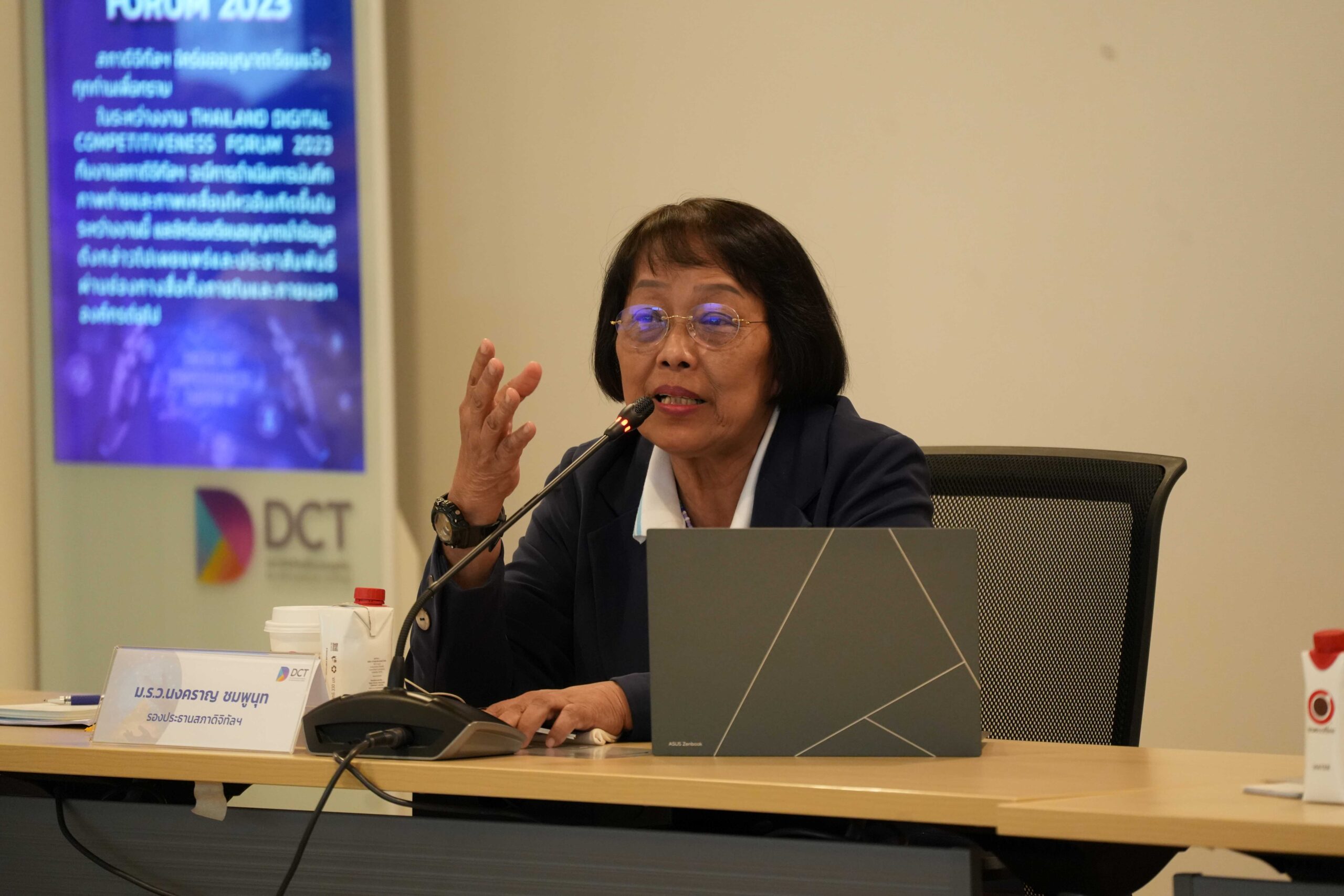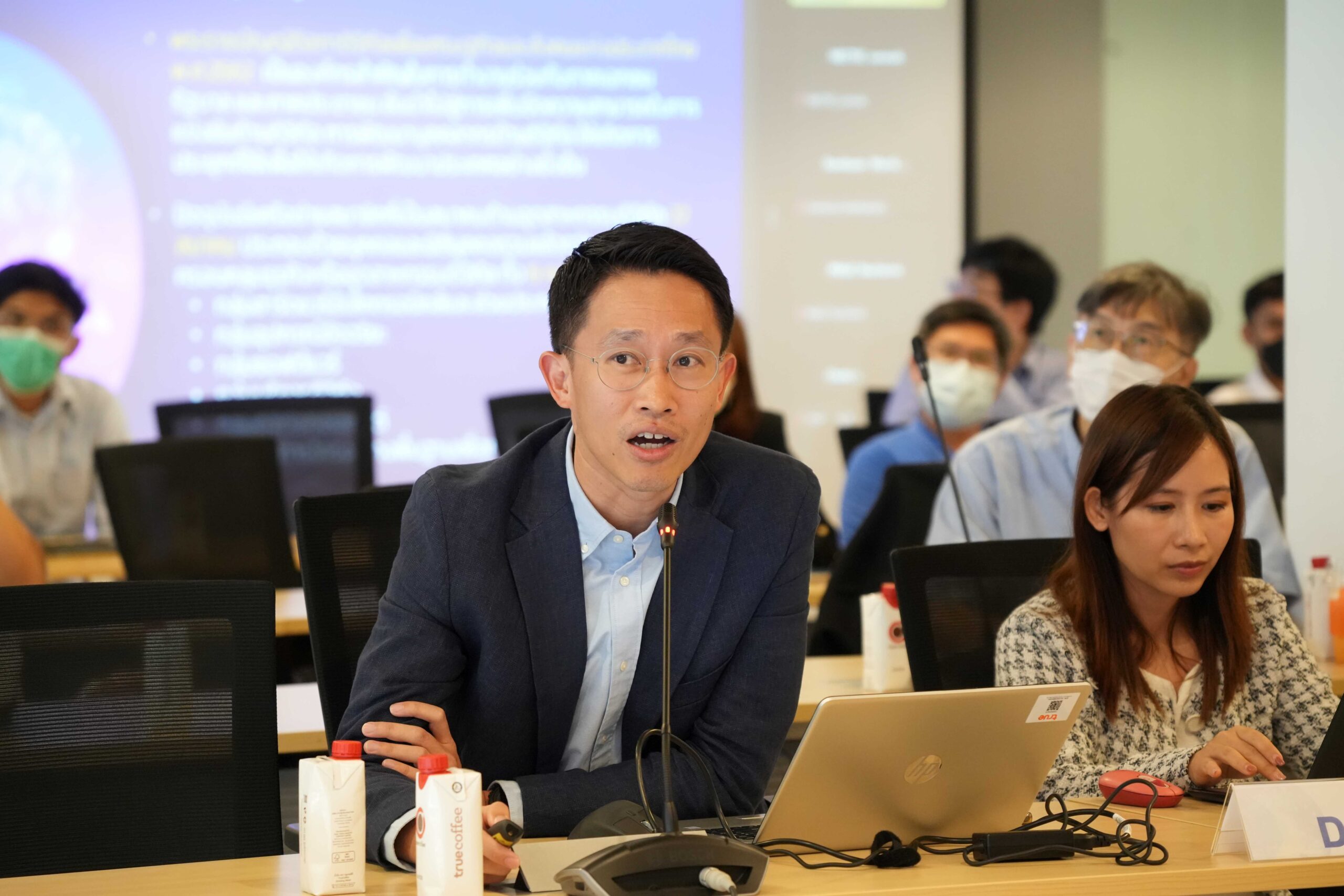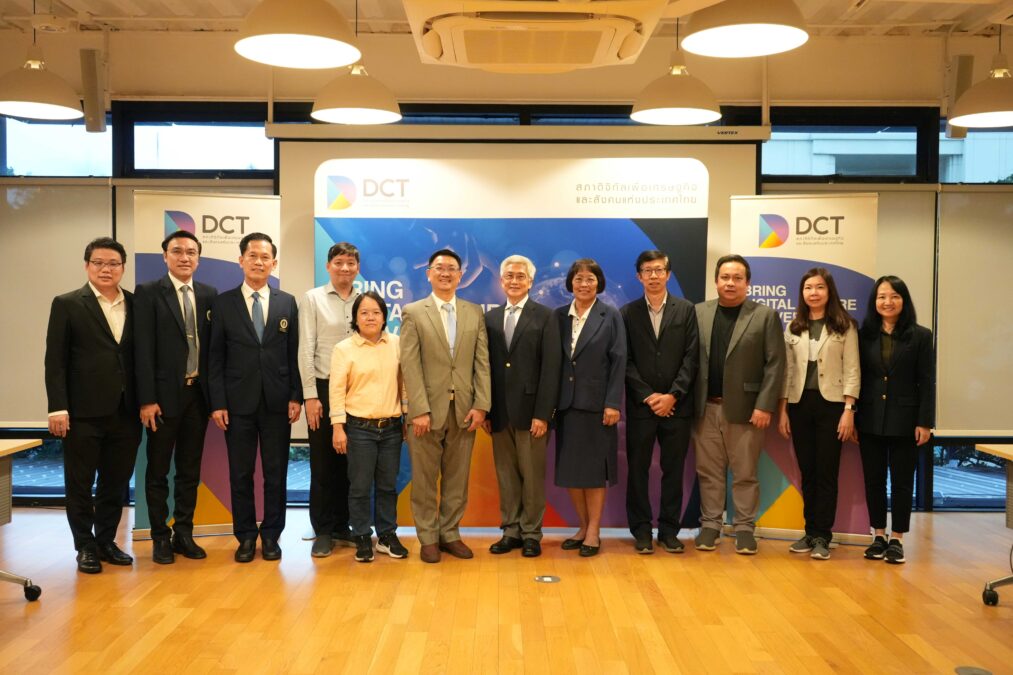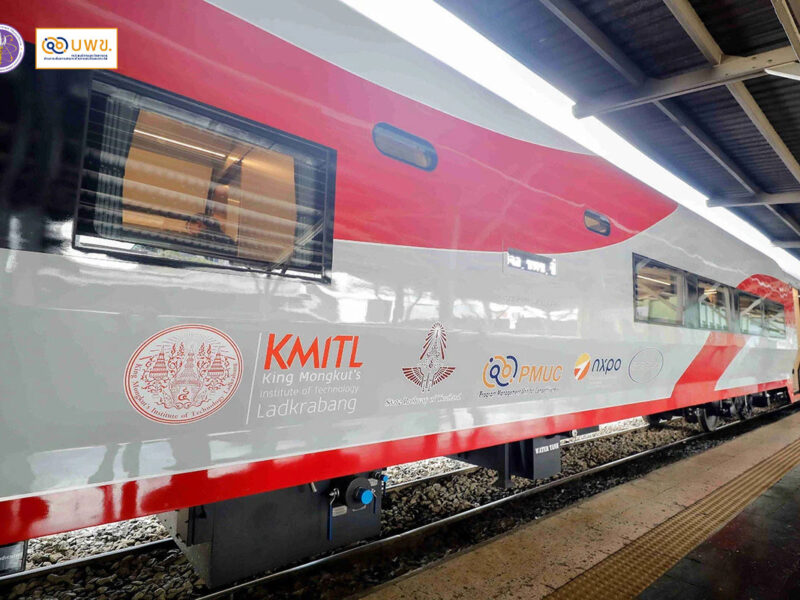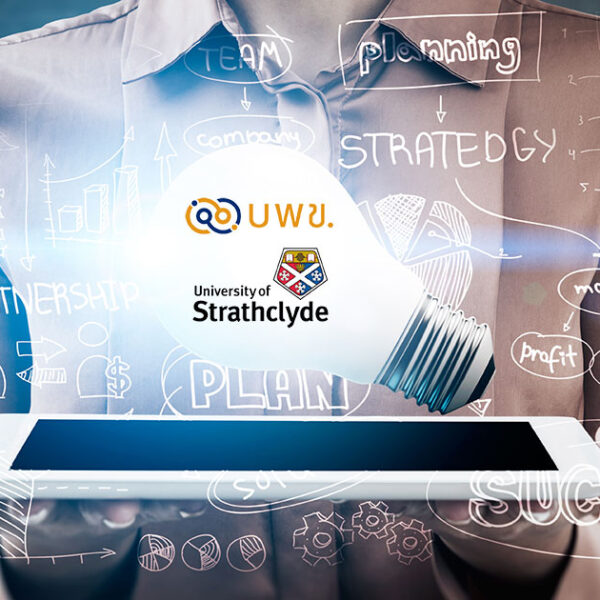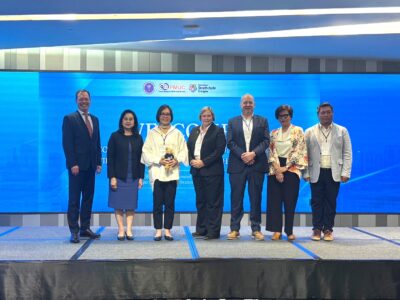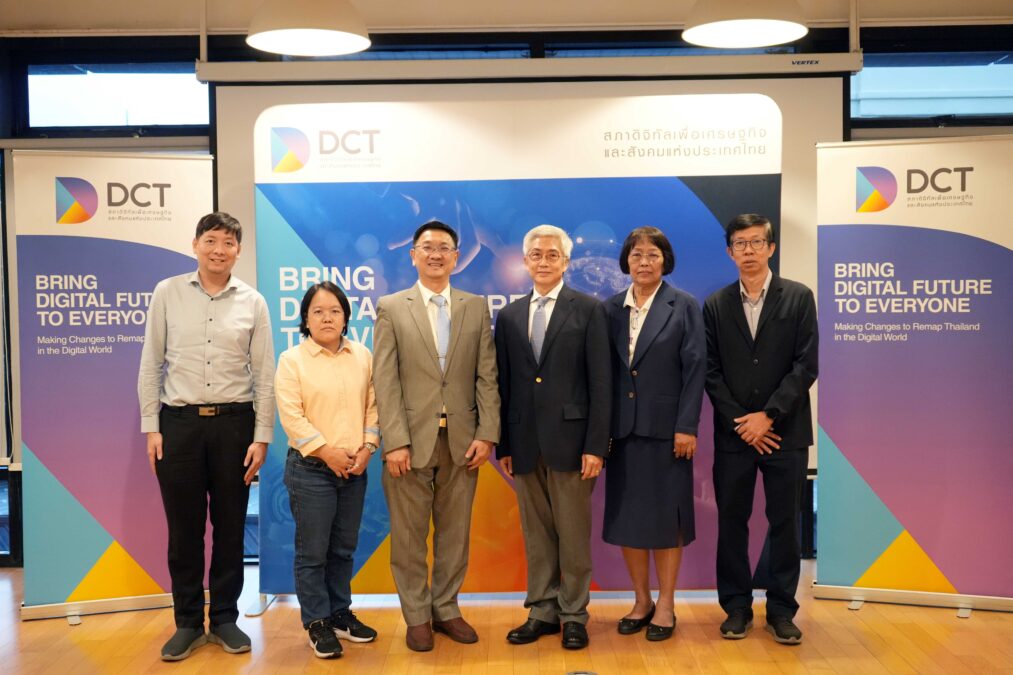
The Program Management Unit for Competitiveness (PMUC) collaborated with the Digital Council of Thailand, and the AI Engineering Institute (AIEI) to organize the Thailand Digital Competitiveness Forum 2023. The event showcased the achievements of AI platforms developed by Thai researchers under PMUC’s funding support. The aim was to promote collaboration in the development of digital innovation, including AI, smart devices, robotics, and automation, to create investment opportunities and business growth through AI innovations in collaboration with digital business networks and AI researchers. PMUC also provided advice on requesting for funding support for entrepreneurs.
On September 18, 2023, the PMUC joined forces with the Digital Council of Thailand and the AI Engineering Institute (AIEI) to host the Thailand Digital Competitiveness Forum 2023 at the Suthi Building, 4th floor, Digital Council of Thailand. The event provided a platform for building collaborative networks and investment opportunities through AI innovation. It brought together experts in digital technology and artificial intelligence. This event was supported by PMUC, acting as a “catalyst” to accelerate and facilitate business development in innovation. It provided opportunities for researchers who have received PMUC’s funding to present their research and innovations through the Virtual AI CoE (Center of Excellence) network of PMUC to members of the Digital Council. This collaboration will help elevate the competitiveness of digital industry businesses in the future, covering five AI technology groups, including:
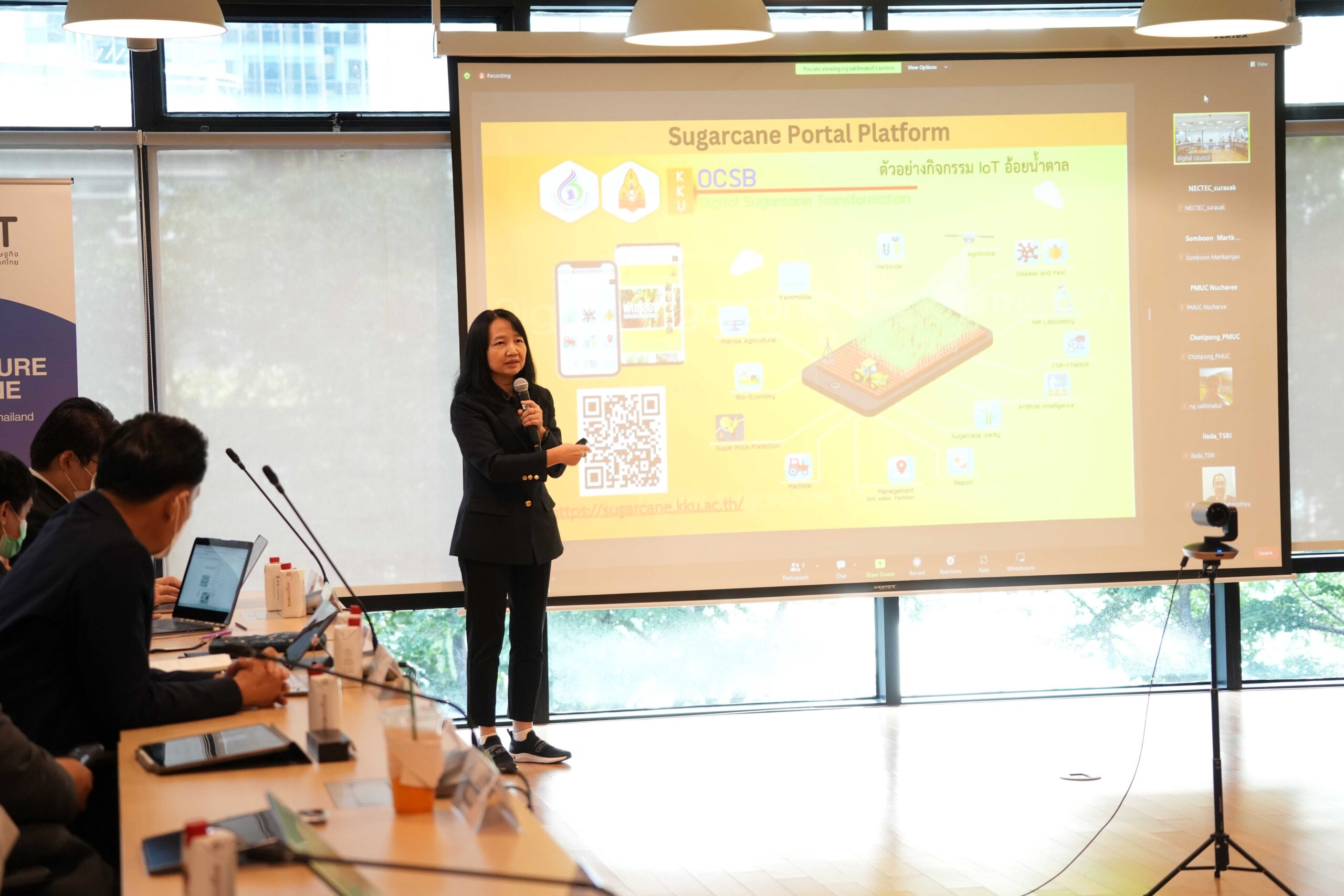
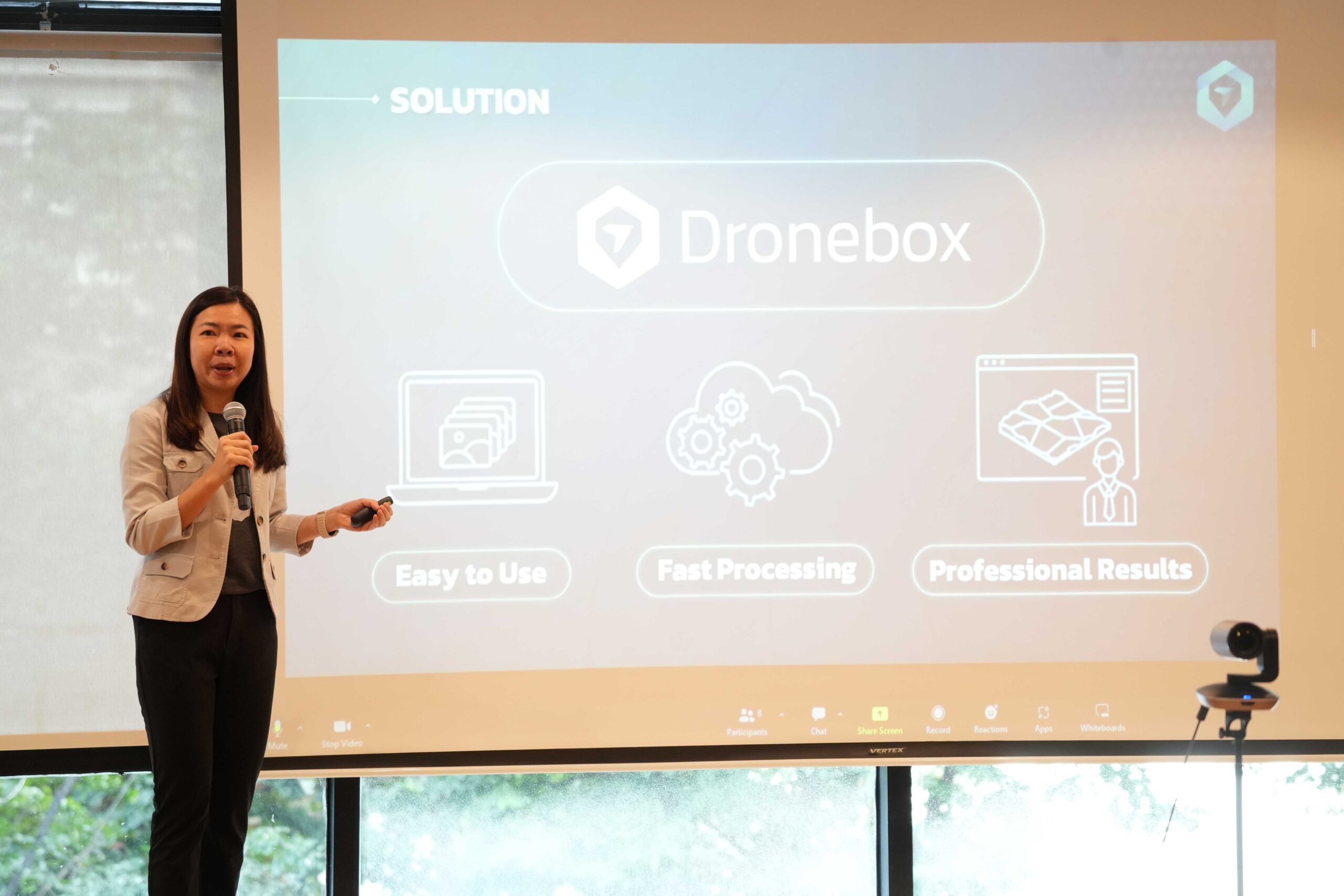
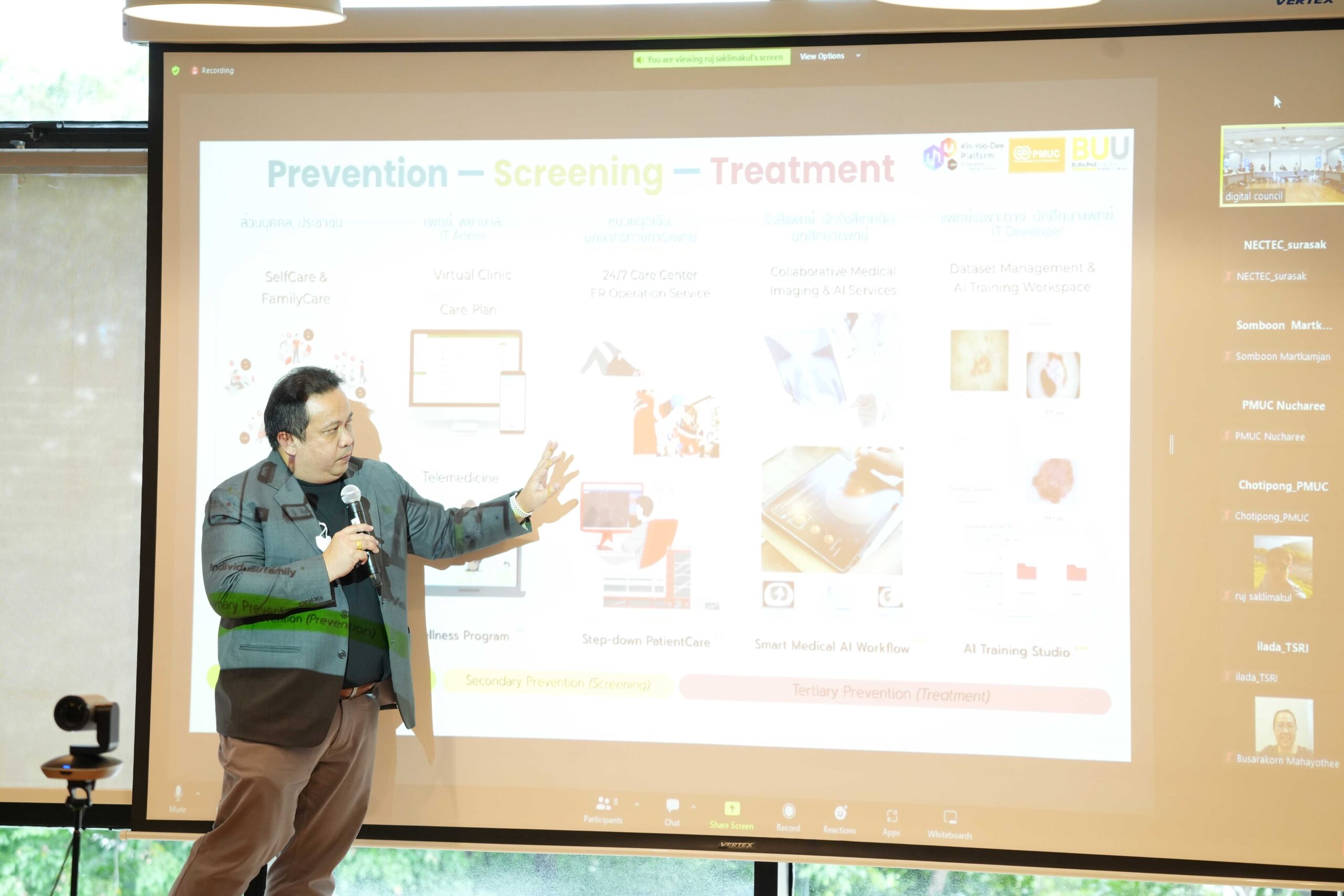

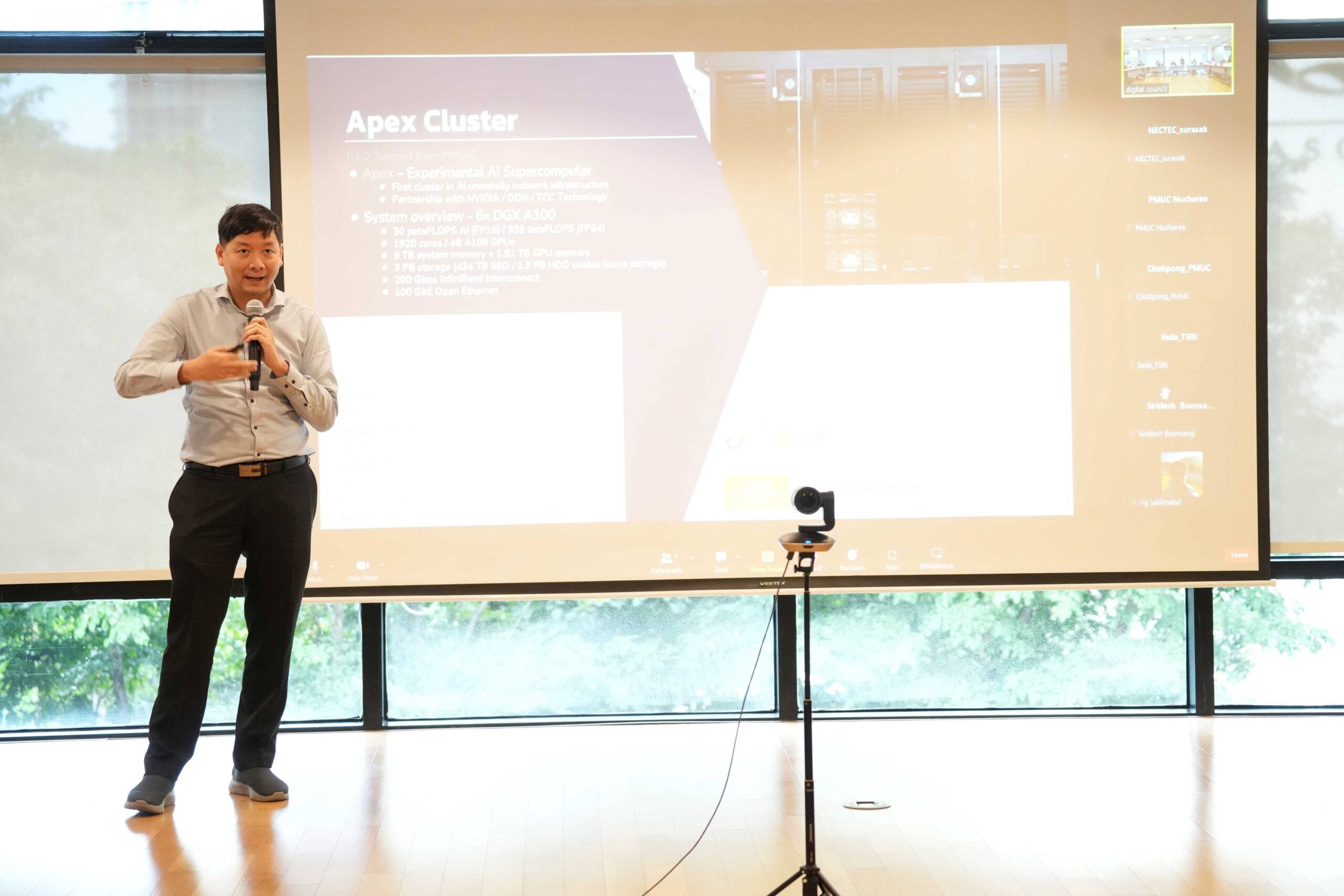
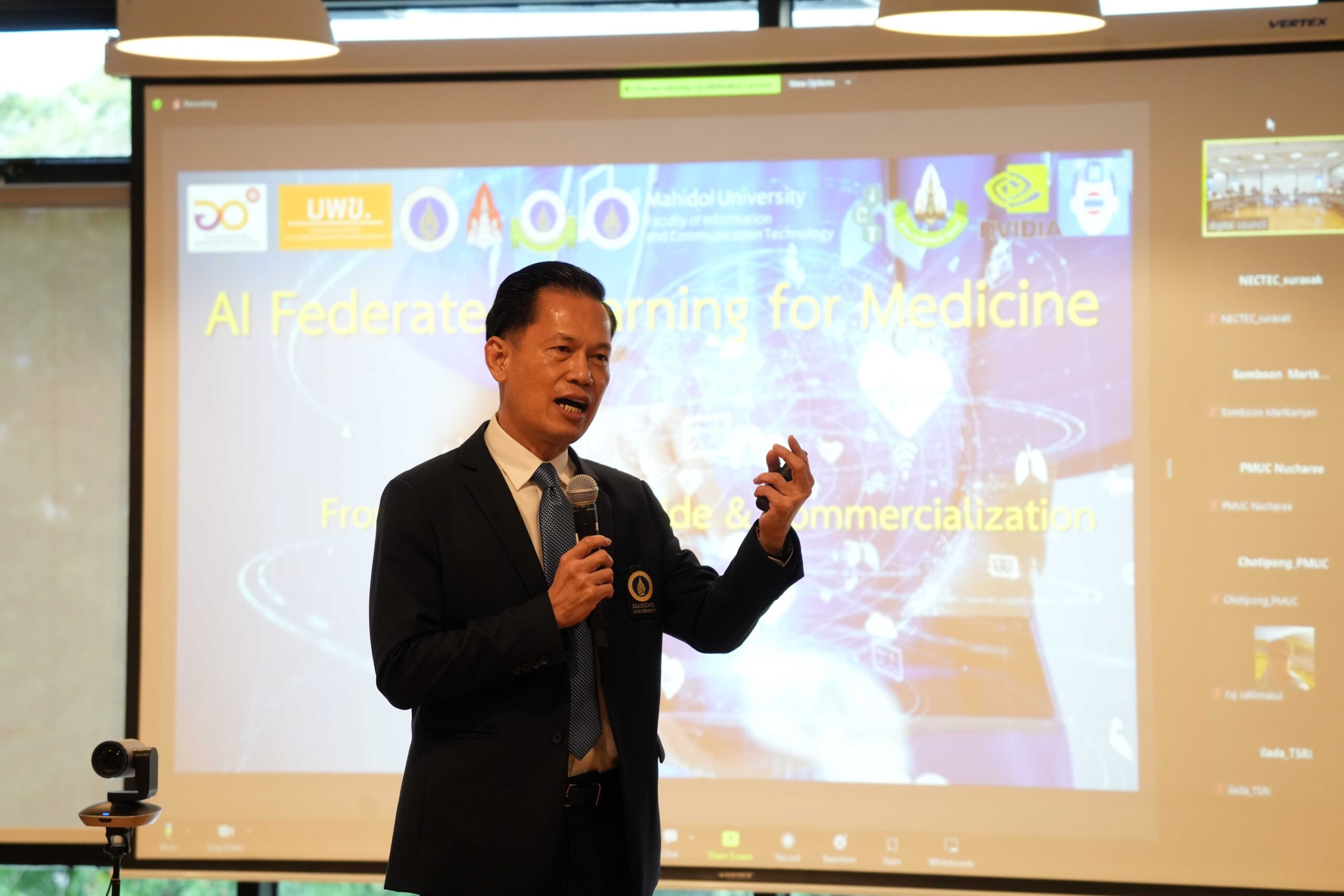
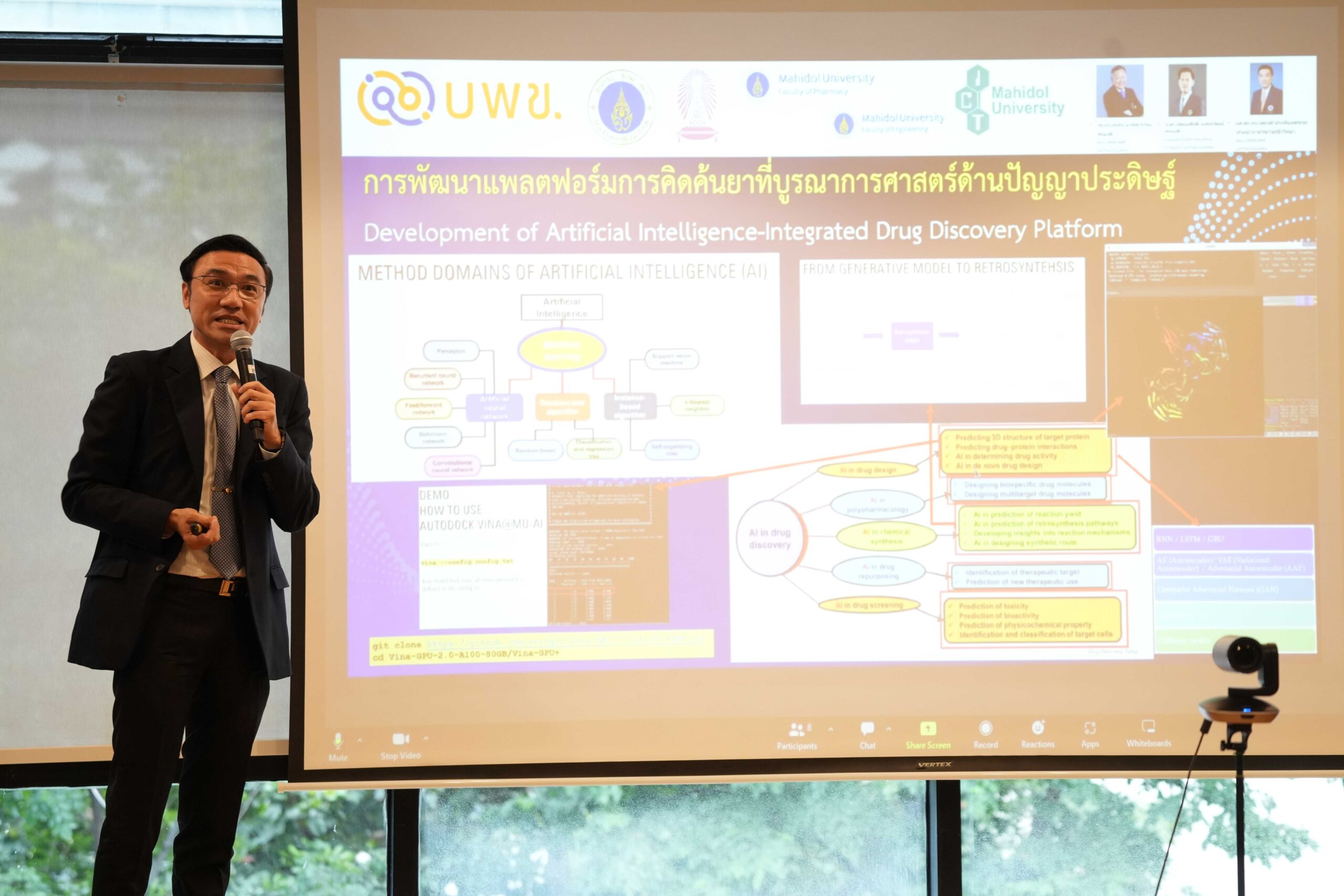
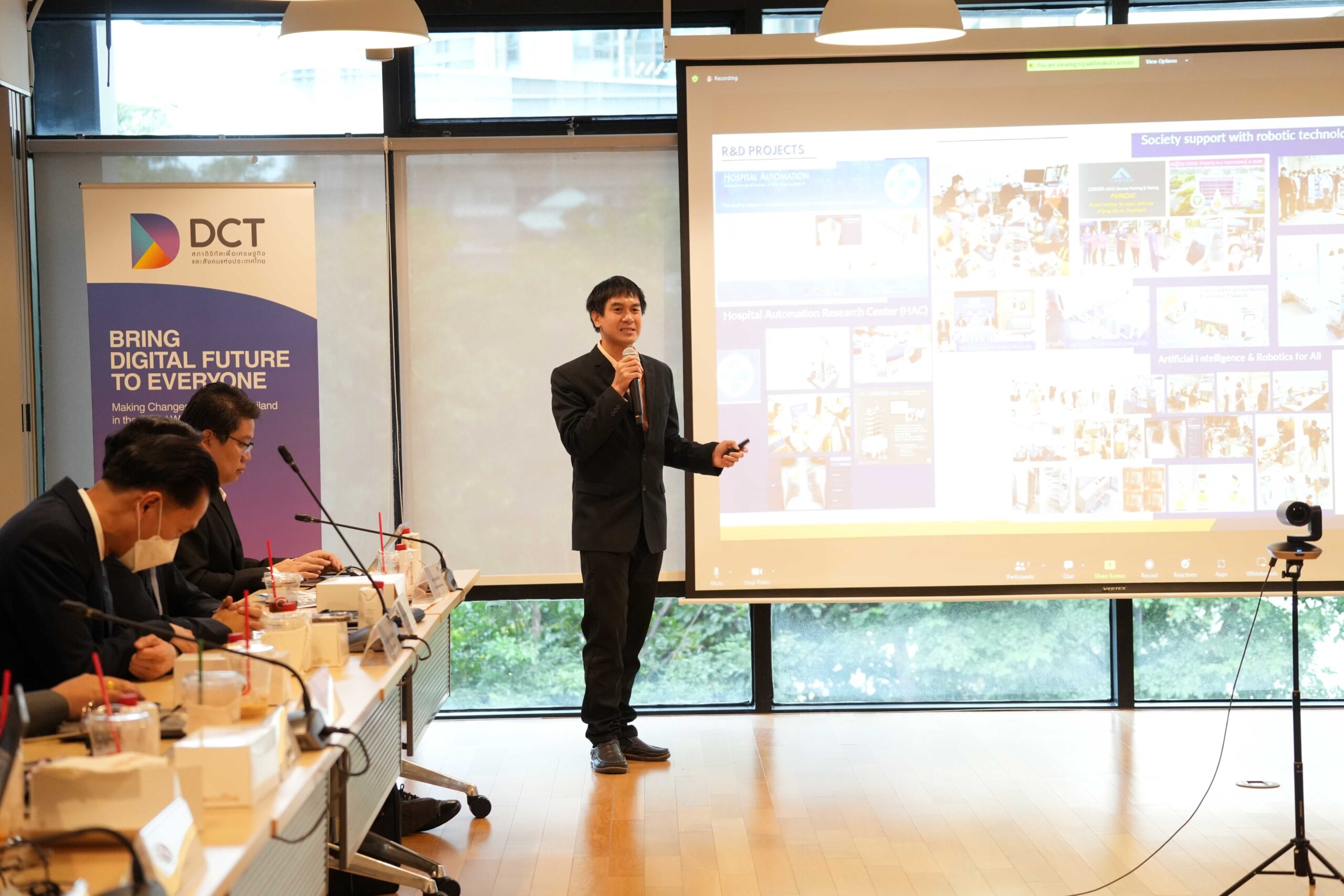
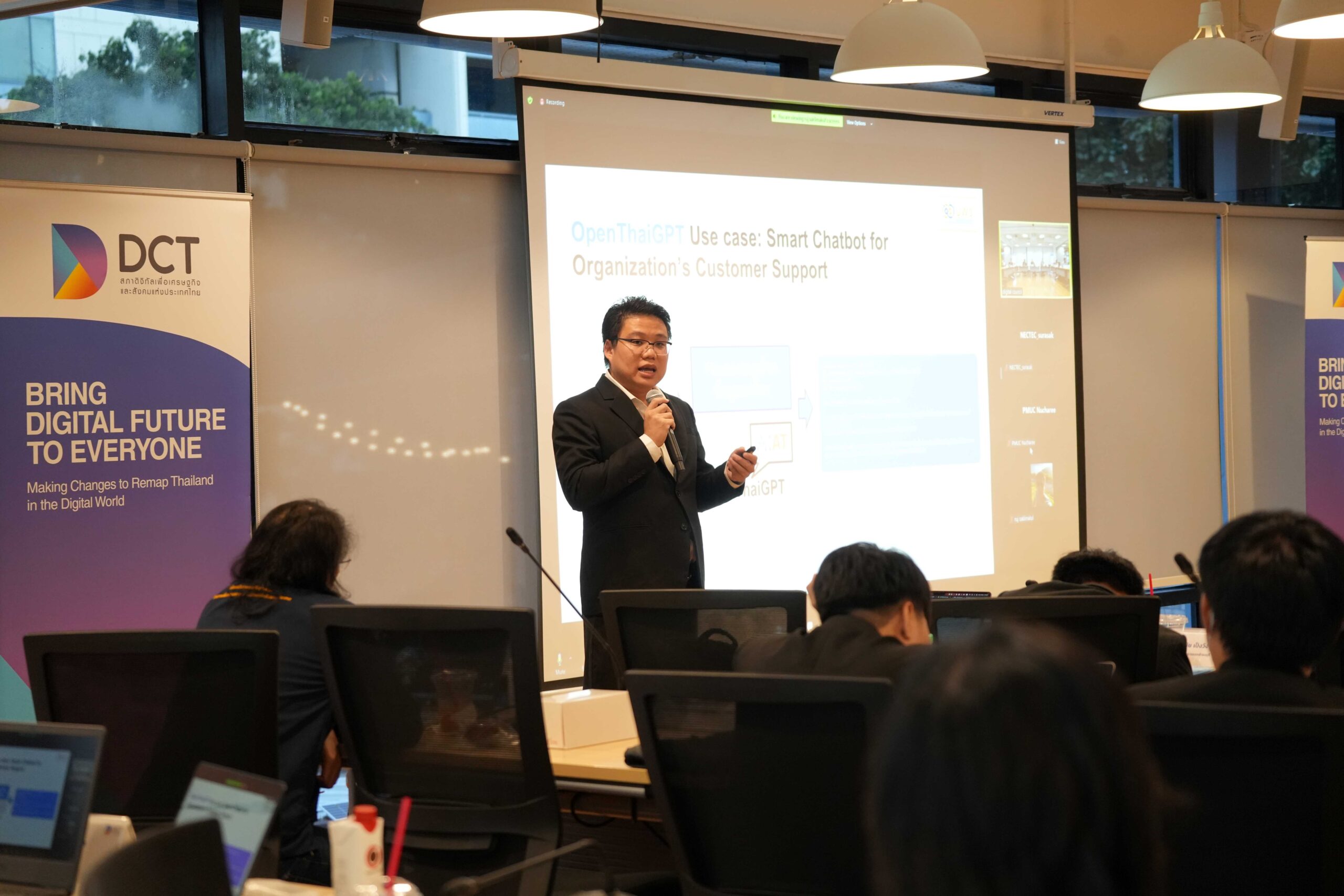
Agriculture & Food: Featuring the Sugarcane Portal Platform developed by Dr. Wanida Kaenakaat from Khon Kaen University. This digital platform supports the management of sugar factories to promote the BCG policy, from the source to the end of the line. Additionally, there is a prototype food processing plant management system developed by Dr. Ekanong Jangbua from the NSTDA, which was a web-based and mobile application. This system collects data on food processing facilities provided by the Food Innopolis Network, an innovation network in the food industry. It also includes industrial IoT devices to connect data from machinery and equipment in the food product processing process. Additionally, it mentions the Dronebox platform, developed by Dr. Duangdeuan Atsawasutthirakun, which processes aerial images captured by drones into various types of maps and models (e.g., 3D models, height models) through cloud-based processing. Both platforms focus on ease of use and convenience for general drone users and target users in industries like mining and construction.
Healthcare & Precision Medicine: Introducing the “Gin Yu Dee” platform by Assoc. Prof. Wirun Sriborirak from Burapha University, which is a comprehensive health and medical platform. It includes Personal Care & Family Care, 24/7 Care Center Operation Platform, Dataset & AI Model Training Studio, Federated AI, and Drug discovery platforms developed by Dr. Phattanasak Mongkolvat and Asst. Prof. Dr. Jaturong Prateungdechkul, B.Sc.(Pharm.) from Mahidol University. The infrastructure of this platform supports medical image processing for various diseases, facilitating better sharing of AI model training among medical institutions to further enhance the capabilities and accuracy of the central knowledge database to be used in the research and discovery of new drugs along with new databases of herbal and chemical components.
Technology and Infrastructure: Highlighting the “Security and Safety Platform in Smart City” by Asst. Prof., Dr. Wanarach Suntiamornthat from Prince of Songkla University. The PSU AI Platform is designed for the application in the field of public safety, tested in the police department’s Sandbox area to align with the requirements of governmental users. This allows the system to display results or send outputs seamlessly into the actual operational processes of police officers (Operation Unit). The PSU AI Platform has the capability to integrate with third-party platforms, serving as a central platform for Thai researchers, private sectors, both domestic and international. This facilitates the adaptation of features to meet user requirements.Regarding the architectural potential of the PSU AI Platform, it enables fundamental processing tasks such as License Plate Recognition (LPR) within a remarkable time of 0.09 seconds on a database containing no fewer than 1 million data sets. Additionally, the platform utilizes the APEX GPU Cloud platform developed by Dr. Akarit Sangpetch, from CMKL University, as the infrastructure and architectural data system for artificial intelligence. This is to support the exchange of large-scale data from research projects and facilitate data exchange from research activities, providing data analysis services using Machine Learning and Deep Learning technologies.
The Robotic and Automation group: includes automatic robotic systems for cleaning solar panels. It is developed by Asst.Prof. Dr. Ekkachai Pengwang, King Mongkut’s Institute of Technology Ladkrabang. The complete automation system for cleaning solar panels for the manufacturing of electricity using digital technology consisting of solar panel cleaning robots for installation on the ground (Solar Farm) and a sensor processing and environment status display system for cleaning robots to adjust the operating commands and repeat cleaning in special areas. Additionally, CiRA CORE is an artificial intelligence platform for industrial applications, such as developing Deep Learning modules to help analyze 3D images for accurate 3D for estimation of objects coordinates. This allows industrial robots like KUKA, Yaskawa, and UR3 to recognize and pick up objects with precision. This research and development are conducted by Assoc. Prof. Dr. Siridet Boonsang, King Mongkut’s Institute of Technology Ladkrabang.
The Digital Services group comprises the user-friendly platform by Asst. Prof. Dr. Orathai Sangpech, CMKL University. This platform is an automatic Thai language speech recognition system used for registering products on online sales applications. It also includes software that imports Thai and regional dialect audio data to teach algorithms and create a public database. Additionally, there is a voice recognition platform by Dr. Surasak Boonkla of NSTDA. It is a voice recognition system capable of transcribing spoken words without limiting the speaker or content, with an accuracy rate of over 80% on average under noise-free conditions and non-overlapping conversations. It supports standard Thai and regional dialects. Another interesting project is the OpenThaiGPT Chat model, a large language model (LLM) that serves as an AI conversational agent for both Thai and English languages. It can handle basic learning tasks, connect with external knowledge sources, and even prepare for the O-Net examination. This model was developed by Dr. Kobkrit Viriyayudhakorn, the Thai AI Business Association.

Assoc. Prof., Dr. Thongchai Suwansichon, Director of the PMUC, stated that today’s collaboration between PMUC and the Digital Council of Thailand, aims to enhance the country’s digital competitiveness. Digital transformation is of vital importance and is one of the target industries of PMUC. In the past, PMUC has supported research funding under the Digital Platform program to develop innovation and advance digital and artificial intelligence research in both the country’s fundamental infrastructure and key industries, including the agriculture and food, healthcare, medicine, and pharmaceutical industries, as well as manufacturing and service industries. PMUC plans to support Thailand in developing digital technology, artificial intelligence, smart electronics, robotics, and automated systems with global potential to meet the needs of the target industries, especially in healthcare and agriculture, high-value foods, tourism, creative economy, transportation, energy, chemistry, and biotechnology, and the use of technology for public services and Thai education at various levels, based on the Science and Technology plan for the nation.
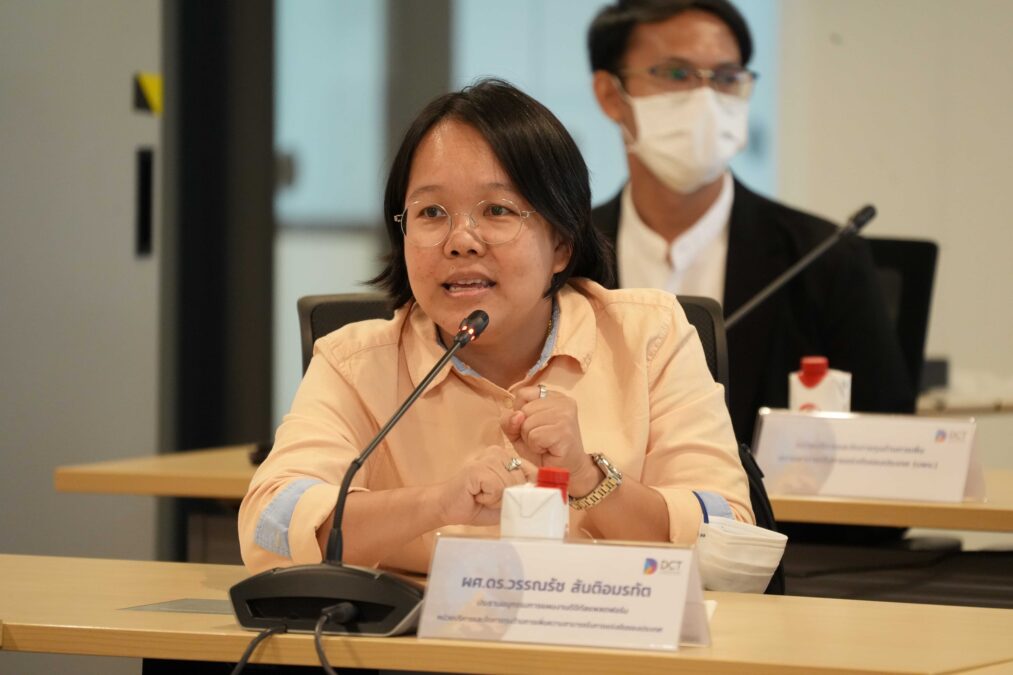
Asst.Prof., Dr. Wannarat Suntiamornthat, Chairman of the Digital Platform Subcommittee, stated that PMUC’s main task is to focus on generating income, supporting research funding to make research valuable and commercially viable. Digital is a critical enabler for driving various industries that PMUC aims to support, including healthcare and medicine, high-value food, tourism, creative economy, transportation, energy, chemistry, biotechnology, as well as taking care of the elderly, among other things, by using digital technology to create value and increase revenue for businesses. Regarding the working principles of the Digital Platform project of PMUC, we aim to take our ecosystem to the global level. We see that the digital sector offers vast opportunities in the global market. We are not just focusing on the domestic market because it is relatively small. Therefore, we must expand our reach to the global market. The key factors driving this expansion to the global stage include research and innovation, developing a skilled workforce in the digital domain, relevant policies and laws, and, lastly, a robust infrastructure for deep technology and scalability in production. PMUC is committed to providing funding support for research and development in areas like smart devices, AI algorithms, robotics, automation systems, and digital service platforms.”
In addition, Assoc. Prof. Dr. Thongchai explained the meaning of “C,” which comes from the word “Competitiveness” in PMUC (Program Management Unit for Competitiveness). It aligns with the agency’s mission, which consists of 5 Cs:
- Connect: This is PMUC’s first mission, which involves establishing connections with various networks that will help the country become more competitive, especially in the digital domain. Collaborating with academic experts, innovative researchers, and business leaders is crucial for driving digital advancements in the country.
- Collaboration: PMUC emphasizes the need for collaboration between academia, innovative researchers, and business players. This collaboration is essential to help businesses become competitive, not only domestically but also on a global scale. Quality and globally competitive standards are key.
- Creativity: PMUC’s mission includes supporting and driving the creation of new innovations, particularly in the digital realm, such as AI, robotics, and smart devices. These innovations should serve commercial or public interests for the country.
- Commercialization: Project proposals should aim to lead to commercialization, which involves creating business models and achieving a quick time-to-market to prevent missing out on competitive opportunities.
PMUC plays the role of a catalyst in ensuring that research projects are efficiently and effectively transformed into commercial uses, which have a substantial impact on the economy and society of the country.All the projects presented in this context are selected because they are interesting and address the goal of enhancing technological competitiveness in various fields. Whether it is in healthcare and medicine, agriculture and food, or in digital infrastructure and services, these projects will be important tools to help Thai businesses compete globally.Furthermore, there is collaboration from 6 university networks: CMKL University, King Mongkut’s Institute of Technology Ladkrabang, Mahidol University, Chiang Mai University, Prince of Songkla University, and Khon Kaen University. These institutions are ready to provide internship opportunities for students in AI-related programs with PMUC members and the digital community. This collaboration is extended to the establishment of AI Center of Excellence (CoE) in alignment with the mission of the 5 Regional Innovation Hubs under PMUC.
